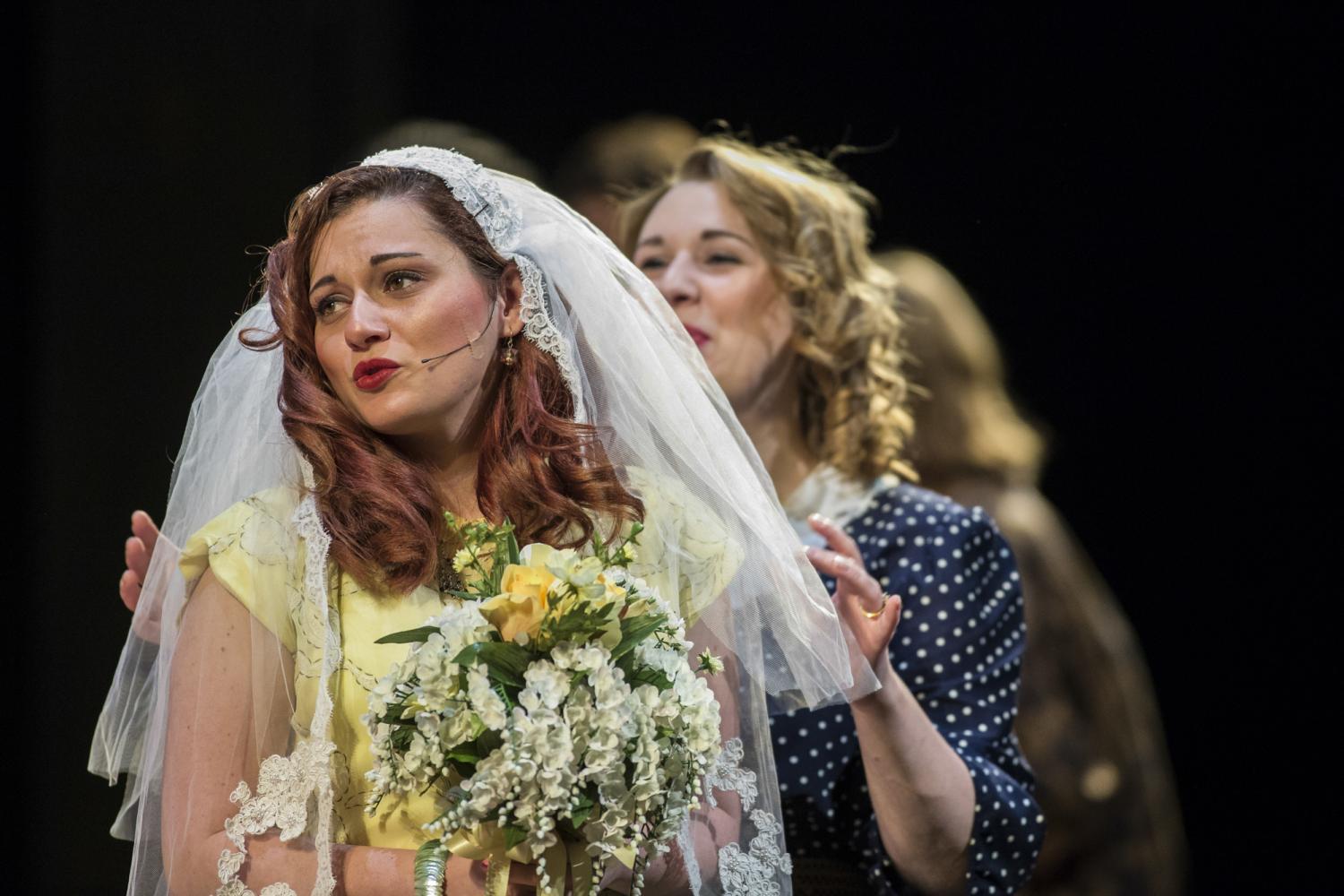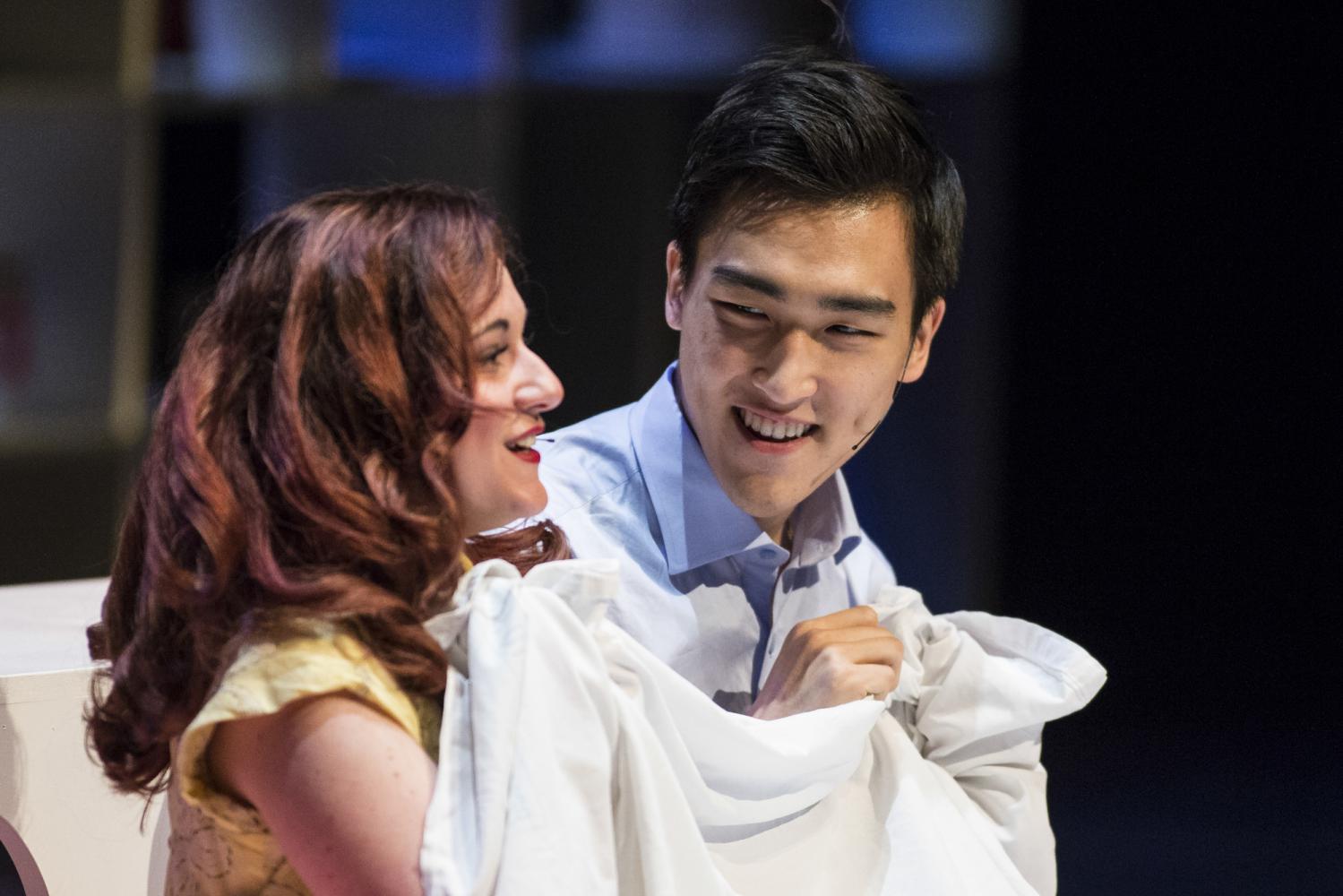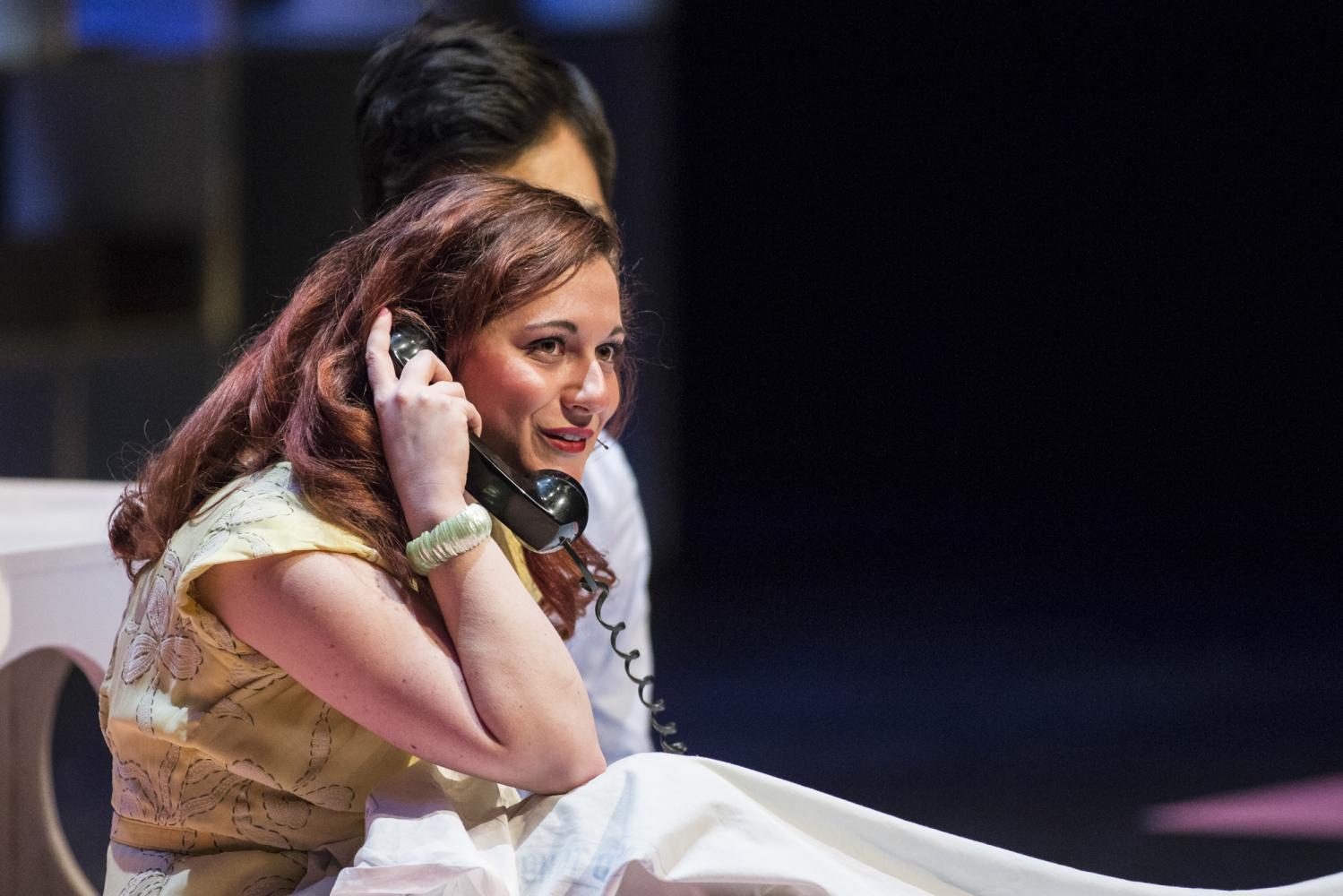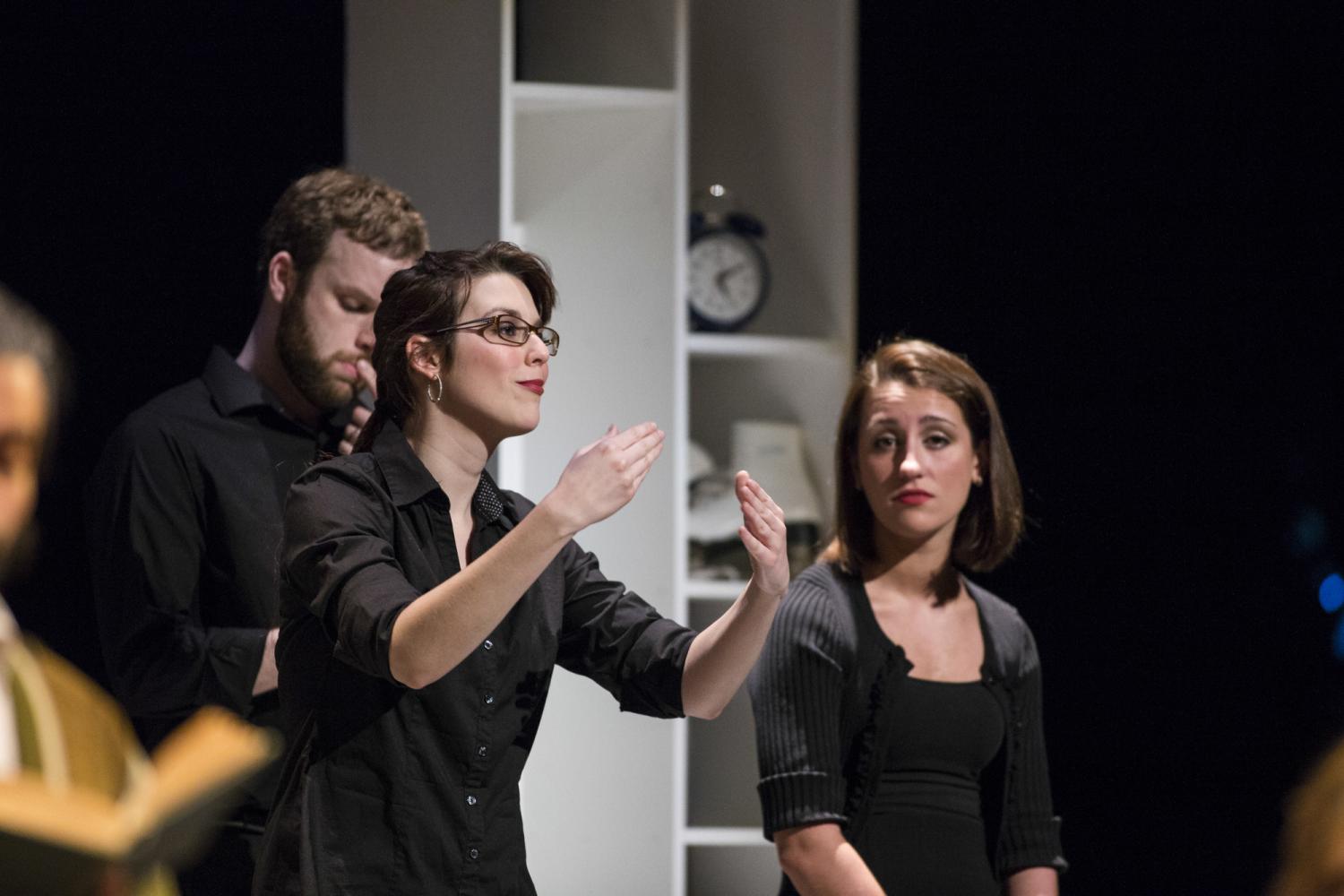From the Shadows to Center Stage
by Lauren Sousa | published Apr. 27th, 2014
For the spring showing of “The Marriage of Bette and Boo,” director David Munnell worked with NTID to create a unique experience for both hearing and ASL audiences.
To make a performance that is unique for the ASL and hearing audiences, the play used shadow interpreters in a way that has not been seen before at RIT. Each character had an actor and an interpreter, with the actors in the front, and the interpreters on a raised platform behind them. With the help of Assistant Director for ASL Performers Nikki Cherry, Munnell created an experience for both these audiences.
Munnell said that in all the years the College of Liberal Arts has had a theatre program they have never had consistent performance space. The conversation about performing in NTID’s Panara Theatre started last year and led to the large scale merging of the two theatre programs for this production.
He comments that all of the technical support, props and most of the other necessary production staff came from NTID. Since NTID is a school for the deaf and hard of hearing, all of their events have interpreters to maximize accessibility. According to Munnell, since Panara is associated with NTID, “We wanted to make sure that we did something that was accessible for everyone.”
Munnell and Cherry decided to integrate American Sign Language and Interpreting Education students as part of the show instead of using captioning or standard interpreting practices to reduce distractions that take away from the show. The interpreters were positioned upstage from the actors so that, “People could watch the hearing actors and also see the signs.” After some practice, Munnell found that, “Hearing people can watch the action downstage without being distracted by the signing upstage.”
The actors themselves think that the style of interpreting adds a lot to the show. Sydni Schiavone, a third year Visual Media student who plays the role of Bette said that they add a lot of character to their roles. She says that they add more physicality to the show, since they’re more animated than the other actors and that the combination of the actor’s voice and the interpreter’s physicality adds more comedy to the show than just an actor can provide.
Isaiah Tyler, a third year ASL-English Interpretation major plays the interpreter roles of Karl, Father Donnally, and Paul. Tyler thinks that this style of interpreting greatly enhances what the audience gets out of the play. He said that there’s a part where the character Matt “talks to himself for a minute. He’s actually having a conversation with himself. Having [an interpreter] there really does help personify what they’re feeling… I think that does add an extra layer.”
While according to Munnell, this style of interpreting hasn’t been seen before at RIT, it marks a successful partnership between the two colleges. It has started a conversation about the potential for more collaborative productions, but nothing is set in stone. Normally interpreters do not have an active role in events, but this production has proven that the integration is possible and adds to the experience. Not only do the interpreters allow the deaf and hard of hearing community to participate in these events, they have proven that they can enhance the experiences of the hearing community as well. This partnership has opened the doors to limitless possibilities for collaboration between RIT and NTID and has helped foster a bond between the two artistic communities.






